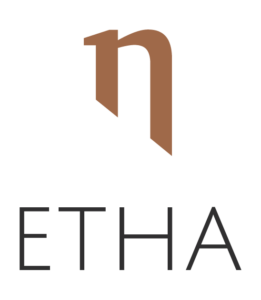Currently, renewable energy has a significant role in energy production in Finland and Sweden. For instance, in Sweden approximately 25 % of the electricity consumption was produced with wind power in 2024, and in Finland, the corresponding figure was approximately 24 %. The development of renewable energy has been, however, very different between Sweden and Finland. In Sweden, significant growth in wind power development took place in the 2000s when renewable energy support systems accelerated investments, whereas in Finland, the wind power development began a decade later in the 2010s when the feed-in tariff system was introduced, making investments more profitable. This explains some of the key differences between the Finnish and Swedish renewable energy market today. Finland has been, however, able to utilize some of the good practices used in Sweden, for instance, wind uptake agreements and other compensation practices for landowners and stakeholders.
Currently, the development of wind power is growing more rapidly in Finland and one reason for this is a shorter permitting process. In Finland, it is possible to proceed to a ready-to-be-built wind power project in five to six years, whereas in Sweden this takes significantly longer, even 10 years. In Finland, permitting process is being directed from municipalities, and municipalities have an economic interest to promote the projects due to property tax income. This incentive has been occasionally criticized for placing economic gain ahead of natural values. The municipal decision-makers are, however, responsible for planning the use of the areas of the municipality as efficiently as possible, taking both the economic and environmental matters into consideration and ensuring stakeholder engagement.
In Finland, the property tax rate for power production
ranges from 0.93% to 3.1% of the taxable value. Wind parks can generate up to 40 000 euros per year per turbine to the municipality.
There are different actors in the renewable energy market in Finland, including, for instance, landowners, early-stage and end-stage developers, energy companies, local Finnish actors and international developers. All these actors work in a different way and face different challenges during the development projects.
“We at Etha are used to cooperating with all these developers. When the challenges of the developers are being investigated, it can be stated that stakeholder communication is the key factor that indicates whether a developer will succeed in the project or not. Interestingly, the early-stage developers and land lease actors can succeed better because they often have a better understanding of the local people and circumstances”, says Etha’s Managing Director, Staffan Asplund.
In renewable energy projects such as wind power, efficient stakeholder communication means open communication and discussion about different impacts of the projects. Environmental assessment reports should be clearly and openly communicated to the stakeholders in public events, using the mother tongue of the recipients. Along the coast of the western and southern part of Finland, it is relatively common that public events are held both in Finnish and in Swedish.
“This matter is something that international development companies are not always aware of even though they demand thorough ESG principles process and environmental assessment to secure projects bankability and risk management. Moreover, municipal decision-makers should demand good stakeholder communication from project developers, and they should ensure that there are enough public events. For Etha, stakeholder communication is important and is included in the company’s mission”, states Etha’s Development Director, Marko Ekman.
“Interestingly, whereas environmental assessments are well instructed and planned, stakeholder communication is not. Making people understand the project and its impacts and being involved in the process should be considered as important as assessing environmental impacts in the project.”, concludes Etha’s Development Director, Marko Ekman.
Most developers understand that focusing in stakeholder communication is an important part of professional risk management, and the entire project organization is aware of this. Instead of just one person specializing in project communication, Etha has a more holistic approach, and has a multi-skilled team of energy professionals with profound understanding of the importance of efficient stakeholder communication, enabling customers to elevate their sustainable energy projects.
“Local project acceptance significantly reduces risks, enhances project value, and strengthens transaction security”, says Transaction Director, Arnaud Defrance. “Being part of an integrated team that deeply understands this dynamic provides a major advantage as a broker when selling projects in the development phase.”
Etha supports customers with wind power, solar power and energy storage projects, giving support in technical, environmental, commercial and legal matters related to the development projects.

